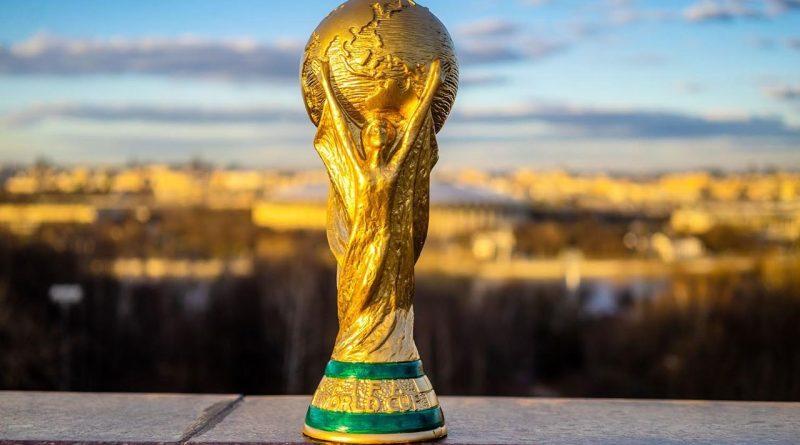The World Cup returns to Africa in 2030
The 2030 FIFA World Cup (www.FIFA.com) is expected to bring the entire world together for a singular global celebration; Morocco, Portugal, and Spain are the only candidates to host the FIFA World Cup 2030TM; Uruguay, Argentina, and Paraguay will host centennial celebrations and sporting events; AFC and OFC member associations are invited to submit bids for the FIFA World Cup 2034TM.
The FIFA Council made significant decisions regarding the bidding and hosting of the Centenary edition of the FIFA World Cup in 2030 during its meeting held via videoconference from the Home of FIFA after extensive consultation with all confederations and given the significance of marking the 100th anniversary of the FIFA World CupTM.
When it unites three continents and six nations in 2030, the FIFA globe Cup will extend an open invitation to everyone in the globe to participate in the celebration of the beautiful game, the Centenary, and the FIFA World Cup itself. The FIFA Council unanimously decided that Morocco, Portugal, and Spain’s joint bid would be the only contender. Morocco, Portugal, and Spain would automatically qualify from the current slot allocation if FIFA’s bidding process were to be successful, and the FIFA Congress would make the final decision in 2024. The event would take place in 2030.
The FIFA Council also unanimously decided to hold a special centenary celebration ceremony in Montevideo, the capital of Uruguay, where the first-ever FIFA World Cup was held in 1930, as well as three World Cup games in Uruguay, Argentina, and Paraguay, respectively. This decision was made after taking into consideration the historical context of the first-ever FIFA World Cup.
Football and FIFA are coming together in a divided globe, according to FIFA President Gianni Infantino. “The FIFA Council, speaking for the entire footballing community, unanimously decided to commemorate the inaugural FIFA World Cup, which was held in Uruguay in 1930, in the most fitting manner.
As a result, there will be a celebration in South America, and three South American nations—Uruguay, Argentina, and Paraguay—will host one FIFA World Cup 2030 match each. Naturally, the first of these three games will take place in Montevideo’s legendary Estádio Centenário, the site of the first FIFA World Cup, to commemorate the occasion.
The FIFA President said, “The FIFA Council also unanimously decided that Morocco, Portugal, and Spain’s combined candidacy would be the only one eligible to host the FIFA World Cup 2030. “Two continents, Africa and Europe, came together to celebrate football in addition to fostering exceptional social and cultural togetherness. What a wonderful message of harmony and tolerance.
“In 2030, we will have a unique global footprint, three continents — Africa, Europe, and South America — and six countries — Argentina, Morocco, Paraguay, Portugal, Spain, and Uruguay — welcoming and uniting the world while celebrating together the “beautiful game,” the centenary, and the FIFA World Cup,” the FIFA President said.
the beginning of the FIFA World Cup 2034TM bidding process
It was also decided that the bidding processes for the 2030 and 2034 editions would be held concurrently, with FIFA member associations from the territories of the AFC and the OFC being invited to bid to host the FIFA World Cup 2034TM. This was done in accordance with the principle of confederation rotation and to ensure the best hosting conditions for the competitions.
The FIFA Council earlier approved the basic hosting conditions on June 23, 2023 for the FIFA World Cup 2030 (https://apo-opa.info/3LLkdaB), and these requirements will serve as the foundation for this bidding process. The FIFA Congress will choose the hosts separately.
The FIFA Council adopted the FIFA World Cup bidding rules for both tournaments (https://apo-opa.info/46do3Bq). The document Overview of the Bidding Processes (https://apo-opa.info/3RGY3dp) contains additional information.
Russian U-17 national teams’ suspension has been lifted
The FIFA Council approved an extension of this decision to the FIFA U-17 World Cup and FIFA U-17 Women’s World Cup, for which UEFA’s competitions serve as a qualification pathway, thus lifting the ban on teams from Russia participating in these tournaments, following the decision of the UEFA Executive Committee on September 26, 2023 to once again permit the participation of Russian representative youth teams at U-17 girls’ and boys’ level. This is predicated on these teams competing under the name “Football Union of Russia” rather than “Russia” and without the use of their national anthem, flag, uniform, or other gear. Instead, they must play in neutral colors.
The FIFA Council reaffirmed its disapproval of Russia’s unlawful war in Ukraine and reaffirmed that the decision’s remaining provisions are still in effect until the war is over.
The start of the FIFA Women’s Futsal World Cup
The FIFA Council announced that the first FIFA Futsal Women’s World CupTM will feature 16 teams and take place in 2025 as a stand-alone competition. The following groups will receive their respective slots: AFC: 3, CAF: 2, Concacaf: 2, CONMEBOL: 3, OFC: 1, UEFA: 4, and host country: 1. The host nation and tournament dates will be revealed in due course.
FIFA competition updates
Additionally, it was confirmed that the FIFA U-20 Women’s World Cup Colombia 2024TM will feature 24 teams instead of 16 and run from August 31 to September 22, 2024. AFC: 4, CAF: 4, Concacaf: 4, CONMEBOL: 4, OFC: 2, UEFA: 5, host country (Colombia): 1, according to the agreed slot distribution.
The FIFA Council also declared the FIFA U-17 Women’s World Cup Dominican Republic 2024TM and FIFA Beach Soccer World Cup Seychelles 2025TM to be held respectively from May 1 to May 11, 2025.
appointment, new
The appointment of Mattias Grafström, FIFA’s Deputy Secretary General for Football, as acting FIFA Secretary General with immediate effect was also agreed by the FIFA Council.




